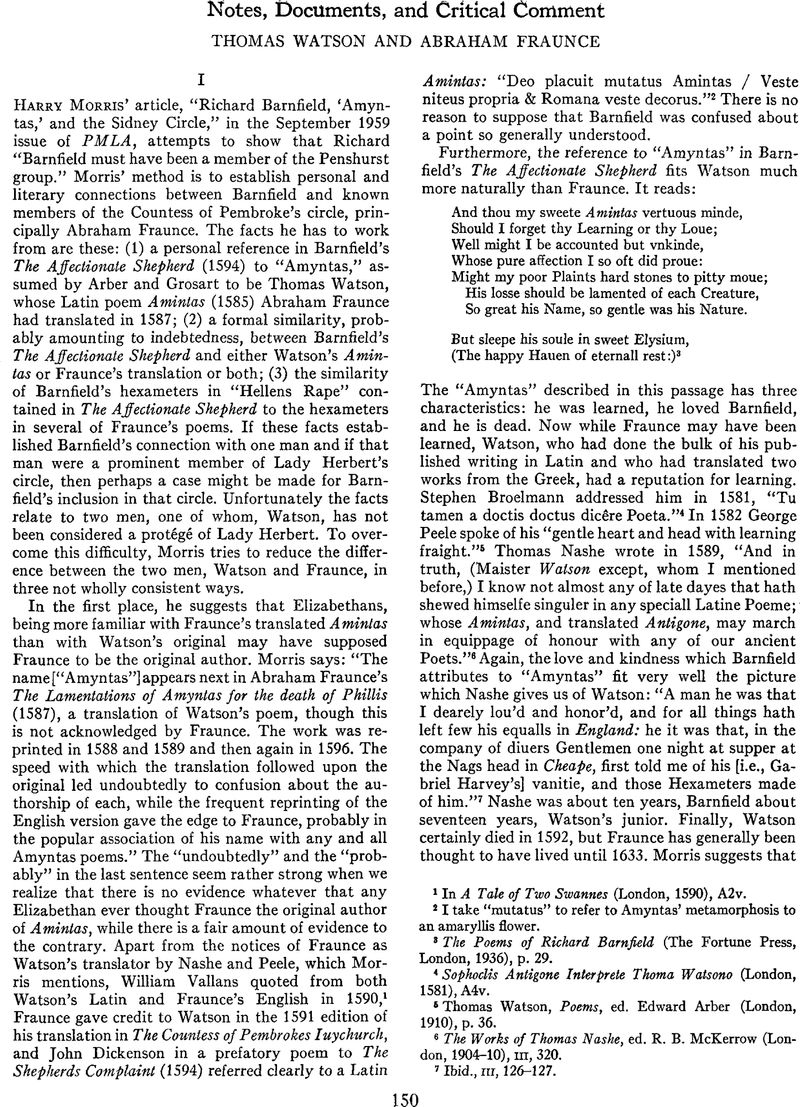No CrossRef data available.
Article contents
Thomas Watson and Abraham Fraunce
Published online by Cambridge University Press: 02 December 2020
Abstract

- Type
- Notes, Documents, and Critical Comment
- Information
- Copyright
- Copyright © Modern Language Association of America, 1961
References
1 In A Tale of Two Swannes (London, 1590), A2v.
2 I take “mutatus” to refer to Amyntas' metamorphosis to an amaryllis flower.
3 The Poems of Richard Barnfield (The Fortune Press, London, 1936), p. 29.
4 Sophoclis Antigone Interprète Thoma Watsono (London, 1581), A4v.
5 Thomas Watson, Poems, ed. Edward Arber (London, 1910), p. 36.
6 The Works of Thomas Nashe, ed. R. B. McKerrow (London, 1904–10), iii, 320. Ibid., iii, 126–127.
8 The Complete Works of Thomas Lodge (Glasgow, 1883), ii, Phillis, p. 5.
9 Harold Littledale, “Did Thomas Lodge Write a Poem About Amintas?” The Athenaeum, No. 3717 (1899), 82–83; N. Burton Paradise, Thomas Lodge (New Haven, 1931), pp. 112–113.
10 Poems, p. 84.
11 Mythology and the Renaissance Tradition (Minneapolis, 1932), p. 309.
12 Christopher Marlowe in London (Cambridge, Mass., 1934), pp. 166–168.
13 Aminlae Gaudia Authore Thoma Watsono (London, 1592), A2r-v.
1 See my extended discussion of Grosart's arguments in the original article, PMLA, lxxiv (Sept. 1959), 320–321.
2 Tulane Studies in English, x (1960), 23.
3 The only source of any evidence that Fraunce was alive later than 28 April 1591. It was never published by Hunter, nor is it now in print. Preserved as Β. M. Add. MSS. 2447824492, it was probably compiled by Hunter (1783-1861) during the last two decades of his life.




